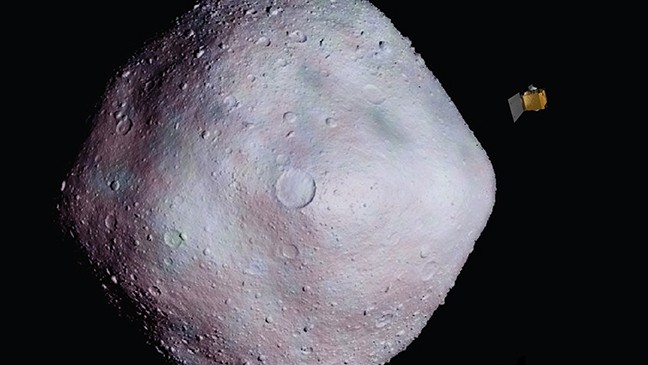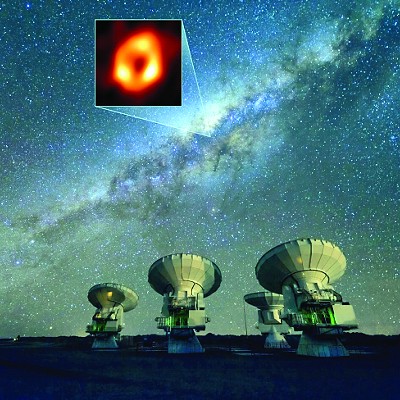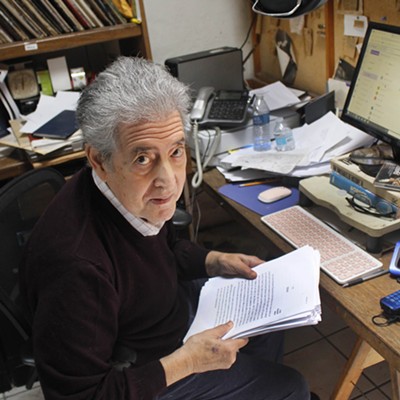After spending more than two years in space and traveling more than 1.5 billion miles, the OSIRIS-REx spacecraft is getting a party. On Dec. 3, OSIRIS-REx is planned to arrive at Bennu, a 1,614-foot asteroid and the target of a seven-year mission to return space samples to Earth.
But just prior to that, on Dec. 1, the University of Arizona and several other Tucson establishments are joining together to host Bennuval! (a portmanteau of Bennu and arrival), a celebration of science, humanities, curiosity and the myths behind the mission.
"We seek to show the beauty of the arts and science together," said event emcee and Meteorite Men host Geoff Notkin. "We're also thematically tying everything together with the theme of 'myth.'"
OSIRIS-REx (Origins, Spectral Interpretation, Resource Identification, Security, Regolith Explorer) and Bennu are both named after ancient Egyptian deities, and Pearce Paul Creasman, UA associate professor of Egyptian archaeology, will present on the myths and their relation to the space mission. Bennuval! will also feature presentations by OSIRIS-REx principal investigator and UA professor Dante Lauretta, improv comedy group Unscrewed Theater, composer Chris Black and more.
"I think our performers and presenters beautifully represent the wide variety of talent we have here in Tucson," Notkin said.
This upcoming event is the second Bennuval. The first took place in 2015, one year prior to the OSIRIS-REx launch. Notkin said this second Bennuval has a more ambitious schedule, with a larger number of performers doing a quicker series of events.
"You often hear the term 'variety show' in entertainment, but you've never seen a variety show like this." Notkin said. "It's gonna be exciting and it's gonna be rapid-fire. There is music, performances, and of course, rocket launch videos."
Lauretta will also deliver a "TED-style talk" about the formation of life, the important role asteroids play on it, and how the OSIRIS-REx mission ties these subjects together.
"OSIRIS-REx is an asteroid sample return mission, so our primary objective is to bring back pristine, carbon-rich material from the asteroid surface." Lauretta told the Tucson Local Media in a previous interview. "And we believe this asteroid dates from the very dawn of our solar system... We're hoping to gain insight into whether these kinds of asteroids delivered the building blocks of life to Earth, and maybe even the water that made our oceans and made our planet habitable."
When Lauretta first asked Notkin about hosting the evening in 2015, Notkin responded "in a heartbeat."
"[Lauretta] is a good personal friend, as well as a colleague. We both believe in presenting the arts and science together," Notkin said. "You hear about STEAM, you know, science, technology, engineering, arts and math, and [Lauretta] is someone who really puts that into practice."
This fusion of arts and science may be no better represented at Bennuval than when rocket launch videos are accompanied by the "alt-classical" music of ChamberLab, or when selections are read from the UA Poetry Center's 2016 exhibit "The Poetry of Spaceflight."
Notkin believes the more people who learn about the OSIRIS-REx mission, the more excited they'll become (and this is great way to study up).
"It's the stuff of science fiction, it almost sounds like an early Star Trek episode," Notkin said.
In total, the OSIRIS-REx mission is planned to last almost exactly seven years: Sept. 8, 2016 to Sept. 24, 2023.
Just imagine the party Tucson will have when our little space probe lands back on Earth, delivering mysterious substances from the heart of space.
"This is one of the most ambitious space missions ever taken," Notkin said. "And Tucsonans should be proud that this literally groundbreaking event is so connected to their city."














